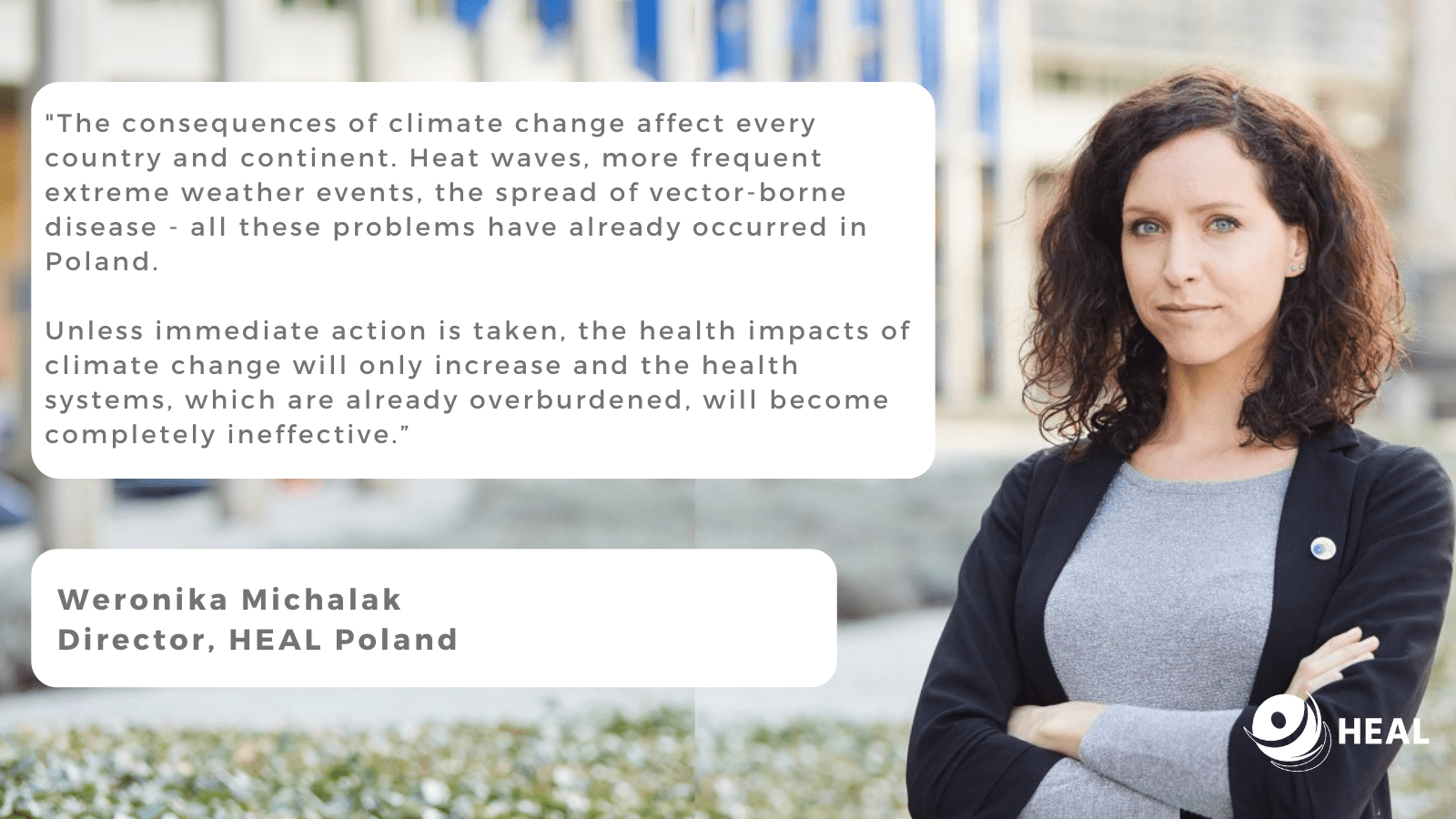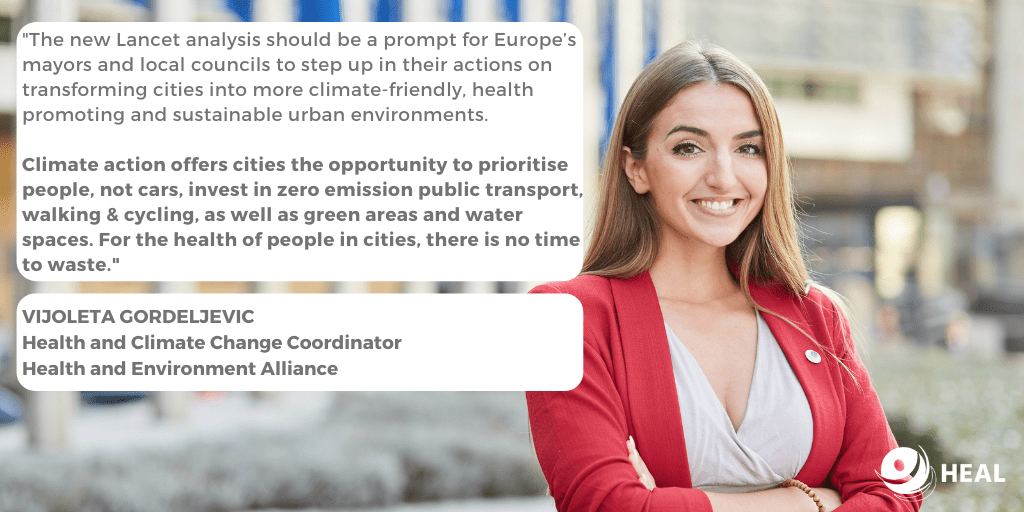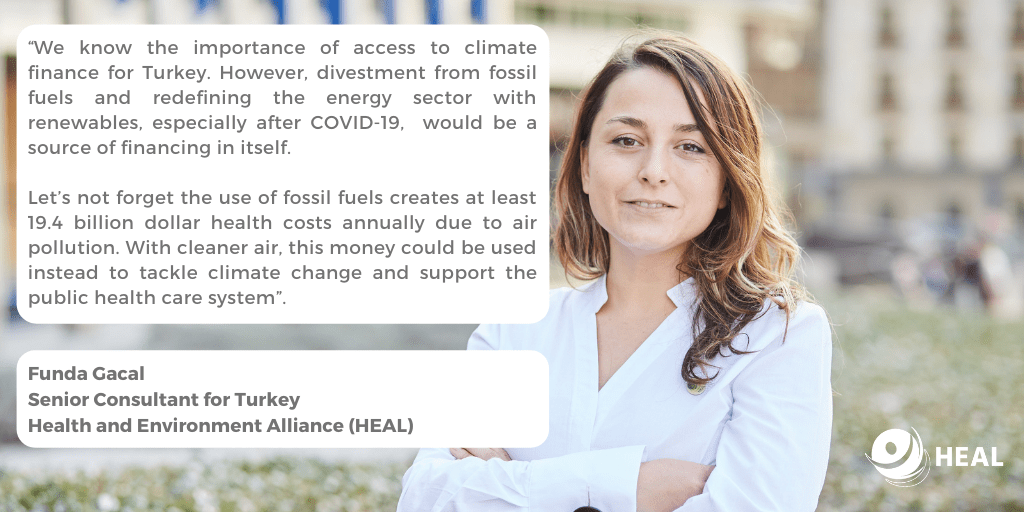HEAL has opened a new chapter in its work in Poland - launching an initiative to address the growing concerns about harmful chemicals; as a recent Eurobarometer survey shows that 84% of Poles are worried about the effects of harmful chemicals on their health.
Responding to the converging climate and COVID-19 crises can deliver a triple win: better public health, a sustainable economy and environmental protection. Climate action can ensure cleaner air, healthier diets, and more livable cities for all. Given Europe’s top vulnerability for heat impacts, EU policy-makers need to step up, especially on their 2030 commitments.
The Lancet Countdown on Health and Climate Change is a unique multidisciplinary collaboration between 120 experts from more than 35 institutions (including the World Health Organization (WHO), World Bank, University College London, and Tsinghua University) dedicated to monitoring the evolving health profile of climate change, and providing an independent assessment of the delivery of commitments made by governments worldwide under the Paris Agreement. Now in its 5th year, the annual analysis tracks progress across 43 indicators, demonstrating what climate action – and inaction – means for human health.
It has made it crystal clear once again that no country – whether rich or poor – left untouched by the health impacts of climate change.
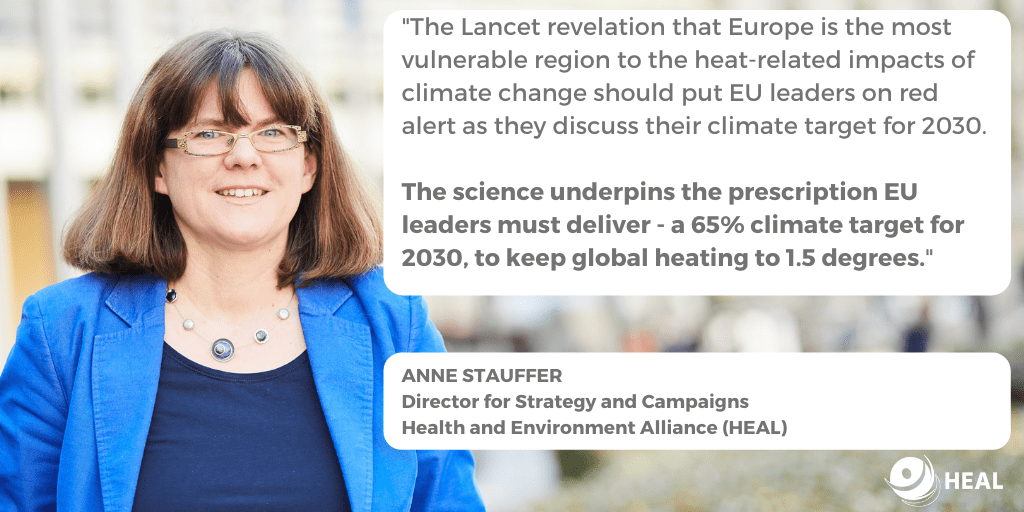
The Lancet’s latest assessment is an eye opener how climate change already impacts the health of Europeans:
All over the world, extreme heat is on the rise and Europe is particularly vulnerable. With its ageing city-dominated population, Europe scores highest on the report’s heat vulnerability index, which combines heatwave exposure with data on population susceptibility and the ability of health systems to cope. In 2018 alone, the European region saw more than a third of heat-related mortality in the elderly with 104,000 out of 296,000 deaths globally.
The Lancet also presents the latest evidence on the increase of premature death from air pollution, the increase in disease transmission and excess deaths from red meat consumption.
However, the 120 world-leading health and climate change academics and clinicians behind the new report say that if we take urgent action to tackle climate change – by implementing plans to deliver commitments of limiting global temperature increases to well below 2C – we can mitigate these shocks and achieve health and economic benefits instead.
At the same time, these actions could reduce the risk of future pandemics because the drivers of climate change can also drive zoonotic pandemic risk (the risk of pandemics caused by infectious diseases that jump from non-human animals to humans).
On Monday, 7 December, researchers, doctors and NGOs will discuss the policy implications of the latest findings for Europe. Join the conversation here.
Partners’ comments
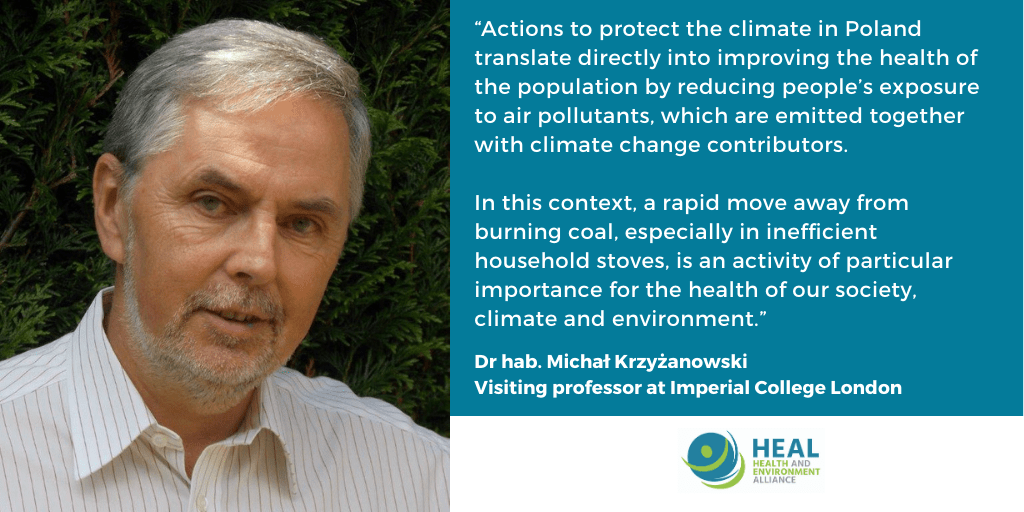
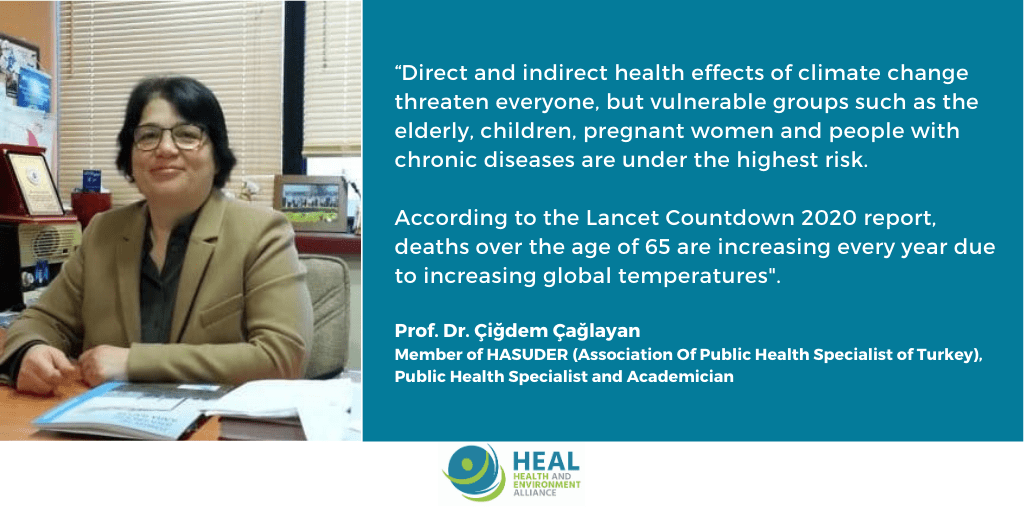
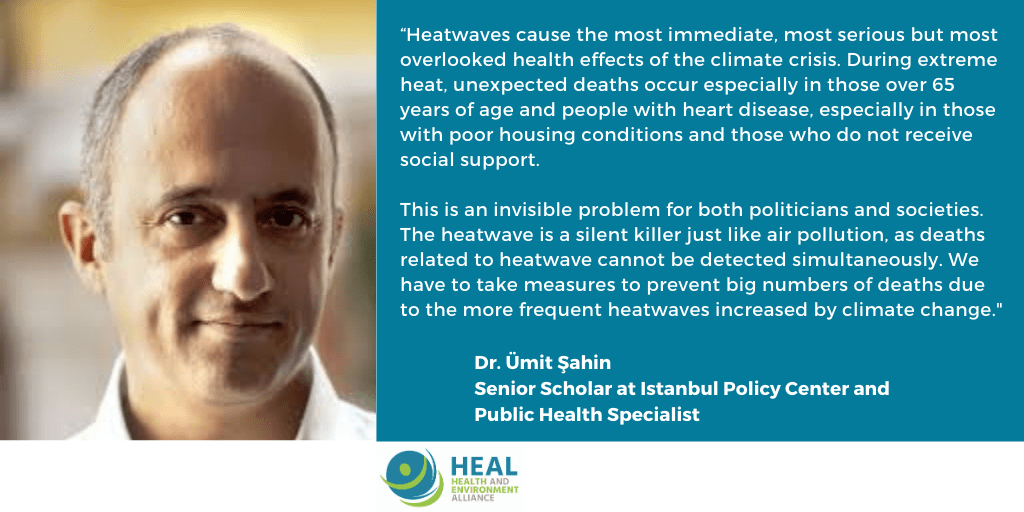
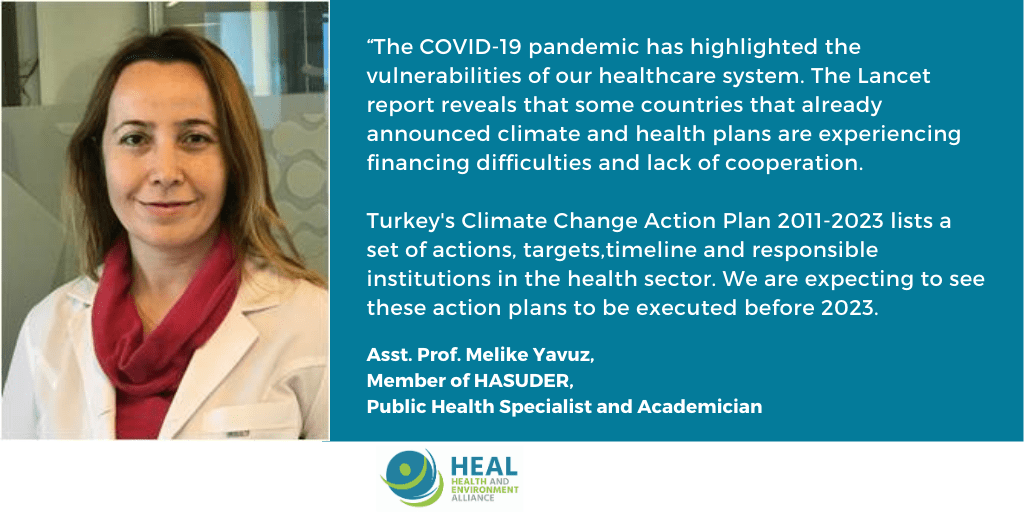
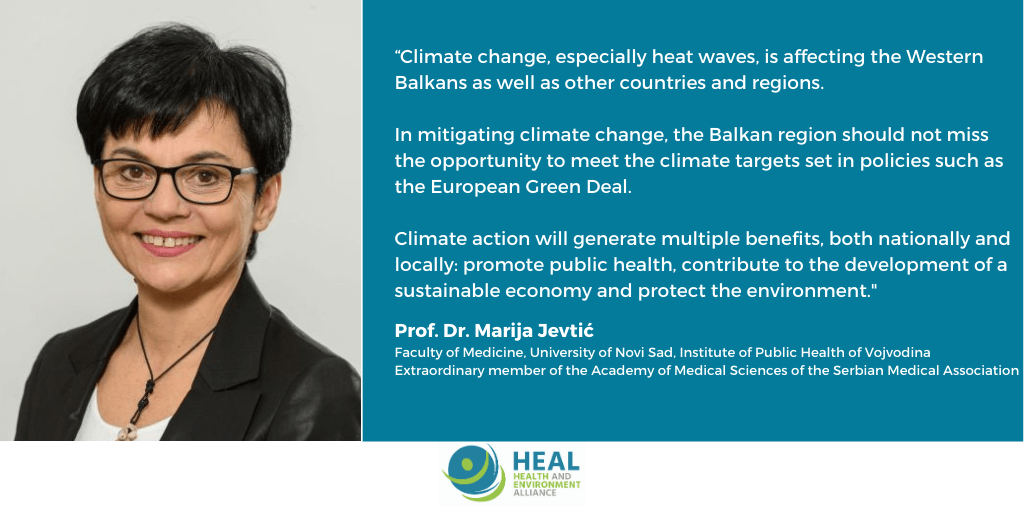 HEAL comments
HEAL comments
